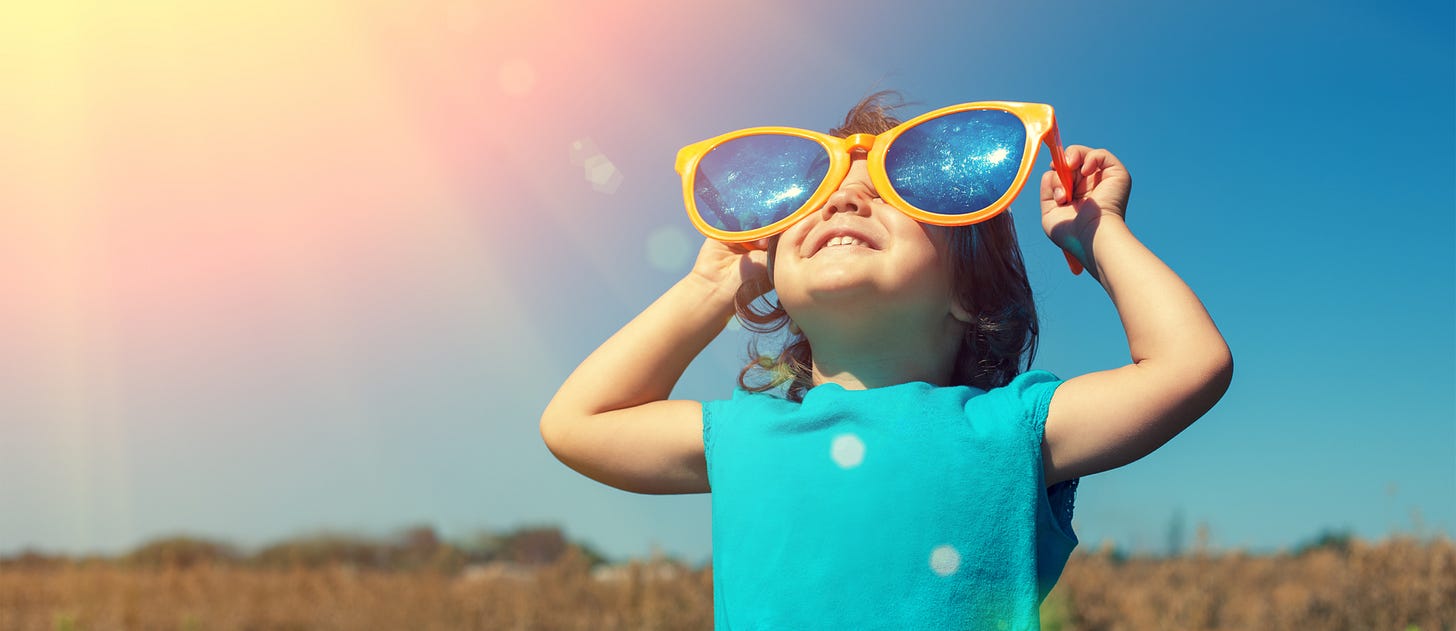We still have time to act
It’s not too late, bad news in disguise, & imagining our lives without fossil fuels with Fredi Otto
This week I’m delighted to welcome Dr. Friederike Otto as the guest editor. Like me, Fredi is a climate scientist who began her career in physics. But she soon realized—as did I—that physics has a powerful real-world application: understanding how a warming planet worsens the droughts, heat waves and storms that put us all at risk.
When it comes to extreme weather, the question isn’t, “Was this climate change or not?” Instead, the key question is, how much more likely and severe did climate change make this event? Answering that requires something called attribution, a technique that’s at the cutting edge of climate science—and Fredi is its pioneer.
To systematically tackle this question at scale, Fredi co-founded and currently leads World Weather Attribution (WWA), an international effort that analyses and communicates climate change’s role in individual extreme weather events.
From droughts in Syria to wildfires in Los Angeles, WWA has helped shift the global conversation by drawing immediate, evidence-based connections between extreme weather and human-driven climate change. Think of it like diagnosing lung cancer: just as medical science can determine how much smoking contributed to the crisis, so too attribution science can quantify how much climate change worsened an extreme event.
Recognizing how vital it is to understand how climate change impacts our lives, in 2021 Fredi and her WWA co-founder Geert Jan van Oldenborgh were named to the TIME100 list as two of the world’s most influential people.
Take it away, Fredi!
In my work, I deal with disasters every day, seeing how climate change destroys homes and livelihoods and makes tough lives ever more difficult with each ton of carbon burnt. So, finding out that one of the most likely tipping points—which, if tipped, would have further drastic effects on the weather—is unlikely to tip this century is very good news indeed.
In a very thorough study, scientists found that the Atlantic Meridional Overturning Circulation (AMOC), which is basically the ocean circulation that makes Europe’s climate so favourable to human beings, is unlikely to collapse anytime soon, even though it is severely weakened due to global warming.
This is good news, not because it suddenly turns climate change into “not a problem,” but because it highlights that it is still not too late to address climate change! If we stop burning fossil fuels now, as quickly as possible, we will be able to live in a warmer, but still stable, climate.
We still have the ability to stop the worst from happening. The power to do this is in our hands—we just need to use it.
Bad news, oof, what to choose. There is a plethora of not-good news around currently, for the climate, women, and the already marginalized and vulnerable. But in this category I would like to highlight some bad news that masquerades as good news: research funding for solar-radiation management, a type of geoengineering.
There is a lot of misunderstanding about what climate change is and what we can do about it. But what I find very worrying is geoengineering, the idea we could “fix it” by putting more stuff out into the atmosphere, rather than stopping burning fossil fuels.
Geoengineering just creates other new problems, which again will be borne by the most vulnerable in society. For example, while geoengineering will lower temperatures globally, it will regionally affect rainfall, such as monsoons, and it will not address the problems that come with ocean acidification. Geoengineering will also create even more complicated global governance issues.
But governments, including my own in the UK, have spent substantial amounts on research that, while scientifically interesting, sends very wrong messages. In this Guardian opinion piece, our colleagues Ray Pierrehumbert and Michael Mann argue that geoengineering is like taking aspirin for cancer. It has long been known that geoengineering is not a viable solution to climate change and the money is urgently needed elsewhere.
Geoengineering is dangerous as it can delay our reaching the real solution, which we know is transitioning our societies away from fossil fuels and combatting inequality. It is also dangerous because it creates a false sense of security, that there is a technology out there that can fix it all.
Katharine here 👋—As I often say, there’s no silver bullet to fix climate change. Instead, there’s a lot of “silver buckshot” that, combined, will give us what we need: and, as Fredi says, that begins with cutting our emissions as soon as possible. For more on geoengineering, check out this Global Weirding episode!
One of the biggest obstacles to tackling climate change is that fossil fuels are so ingrained in our lifestyles, colonial history, and narratives that we lack the imagination to see how much better our lives would be without them.
Independent of climate change, wouldn’t it be amazing to live in a city with lots of green space, where you would not have to fear for your life every time you cross a road? But cars and the car-centered lifestyle have been romanticized in our movies and stories.
So the most important thing every single one of us can do is to imagine, talk, and dream about the better world we want to live in. I try to do that whenever I get a chance to talk on a podcast or give an interview.
While mainstream art and culture is not very helpful, there are some great books you could read and share. One of my favourites is A Psalm for the Wild-Built by Becky Chambers, in the “solarpunk” genre that imagines a liveable, greener future.
If you want to read a bit more about the value and need for green utopia, this is a nice essay about “solarpunk” fiction and how imagining a greener future could help us all.
Thank you Fredi, for an amazing guest edition!
So often, our science is full of apocalyptic scenarios of how bad things already are, and how much worse they will get if we don’t do anything. But as neuroscientist Tali Sharot reminds us, “The human brain is built to associate 'forward' action with a reward, not with avoiding harm.” For that reason, she encourages us to “reframe your message so that the information you provide will induce hope, not dread.” And as Fredi has pointed out, that is something we can all do!
As she also reminds us, climate change is profoundly unfair. Fredi’s own attribution research shows how the impacts of extreme weather fall disproportionately on people in poverty-stricken countries like Malawi and Eritrea that have done the least to contribute to the problem in the first place.
That’s why I’m so excited to read her new book, "Climate Injustice: Why We Need to Fight Global Inequality to Combat Climate Change." It will be released in two months, and you can pre-order your copy today wherever you buy books!
For more on Fredi's work, visit the World Weather Attribution studies collected here. and to learn more about attribution, check out her first book, Angry Weather.
Tues April 1 at 5:30pm ET - Ignatius Lecture at American University - in person in Washington, DC. Join virtually here, free
Thurs April 3 at 5pm ET - Faith & Waters Restoration Forum with Oakland Mills Interfaith and Interfaith Partners for the Chesapeake - in person in Columbia, MD, free
Fri April 4 at 7pm ET - Climate change, faith, & culture with Wayne Presbyterian Church - in person in Wayne, Pennsylvania; livestream information to come
Sat April 5 at 10am ET Breakfast and Q&A with Wayne Presbyterian Church - in person in Wayne, Pennsylvania; registration required
Tues April 8 at 11am CT Posey Leadership Award with Austin College - in person in Sherman, TX, free
Weds April 30 at 8pm ET - Don’t Say Climate? Bridging Divides with Katharine Hayhoe a fundraiser for the Climate Psychology Alliance of North America - virtual, $35











Climate scientists have my ear not the geoengineers.
Stop burning fossil fuels. Let's move on to greener pastures not more chemical pollutants entering our soil, our air our oceans.
Thanks for an engaging and informative post, Katharine, and the introduction of your amazing colleague, Fredi Otto.
I'd like to share something with you and your readers that blew me away: "The planet-warming emissions generated during the first two months of the war in Gaza were greater than the annual carbon footprint of more than 20 of the world’s most climate-vulnerable nations, new research reveals." https://www.theguardian.com/world/2024/jan/09/emissions-gaza-israel-hamas-war-climate-change
I wonder if more people would want peace if they realized how terrible the effects of war are on our climate and environment.